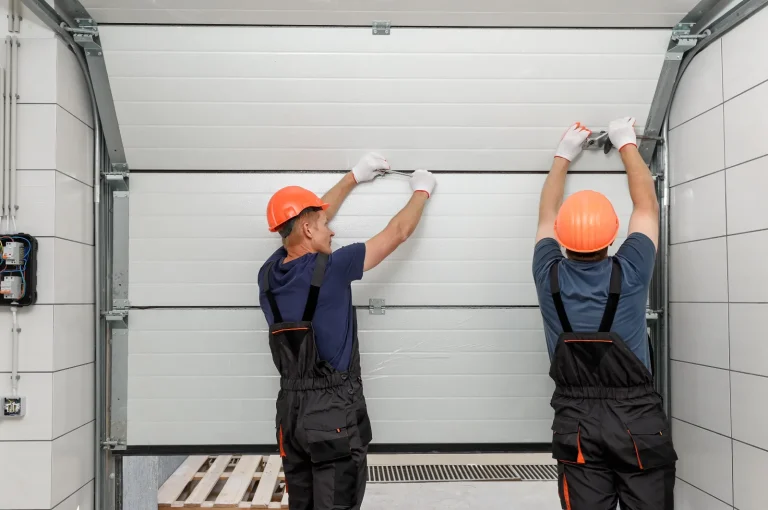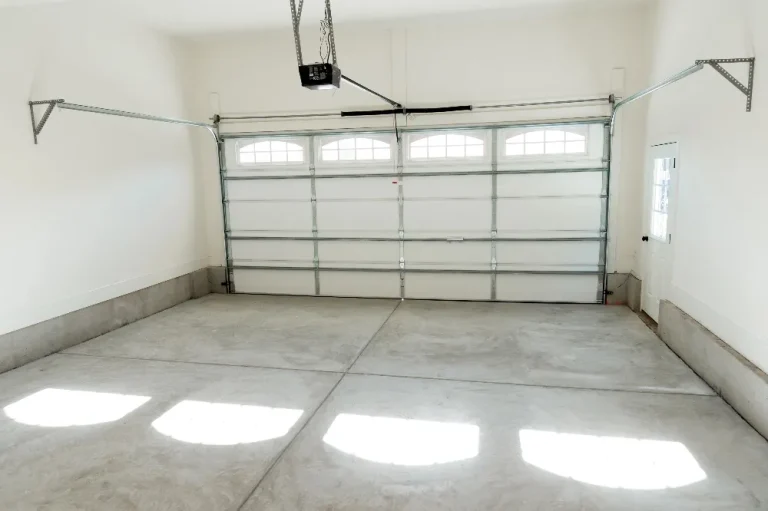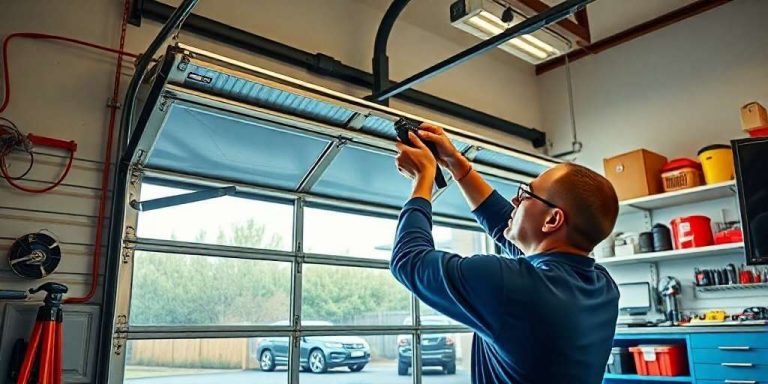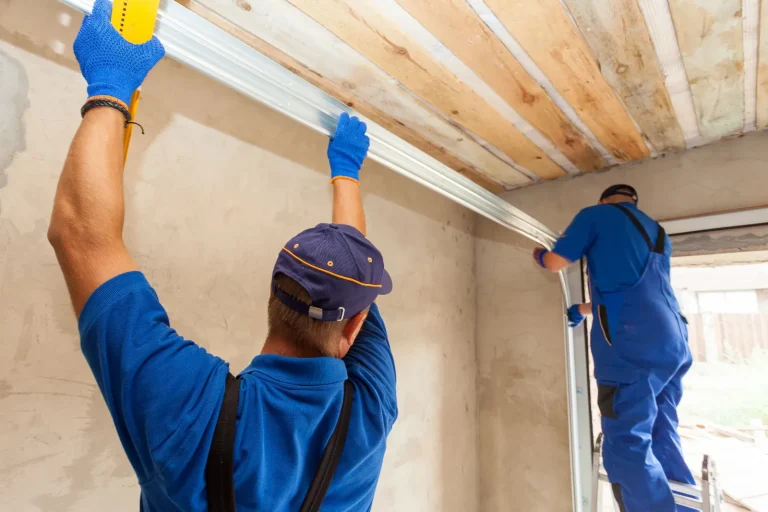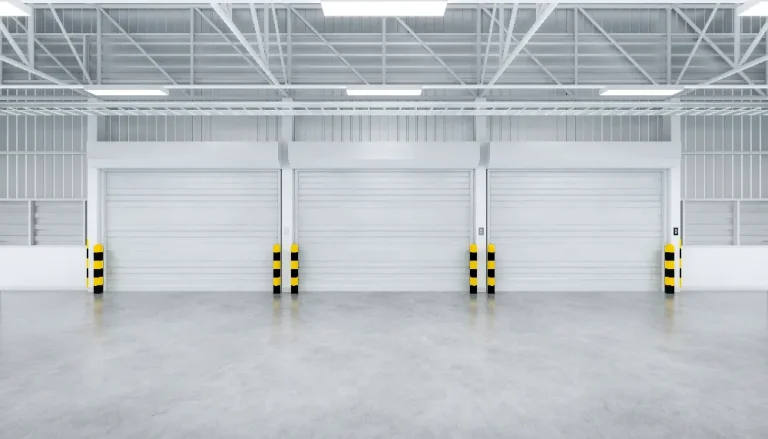Guide to Garage Door Repairs: In the quiet early hours or the bustling afternoon rush, your garage door stands as a steadfast guardian, shielding your vehicle and possessions from the unpredictable outside world. Yet, like any unsung hero, its steadfastness can falter, leaving you with an unsettling noise or a stubborn refusal to open. At that moment, the question of “how much does it cost to repair a garage door?” becomes more pressing than ever. Before you find yourself cornered into an expensive emergency repair, understanding the costs and avoiding unwelcome surprises can empower you to make informed decisions—saving both time and money. Journey with us as we unravel the mysteries behind garage door repairs, breaking down the complexities and offering a clear view of what to expect when your garage door calls for help.
Imagine the intricate ballet of gears, springs, and panels working in perfect harmony every time your garage door glides open or shut. It’s easy to take this graceful automation for granted until something goes awry. This master guide is here to equip you with the knowledge needed to navigate through various repair scenarios, from simple fixes to more complex overhauls. We’ll dive into the different factors influencing costs, such as material types, labor rates, and the nature of the damage, turning what might seem like a daunting task into an understandable process. With this information at your fingertips, you’ll be prepared to face any garage door challenge with confidence, ensuring that your trusty door continues to serve you faithfully for years to come.
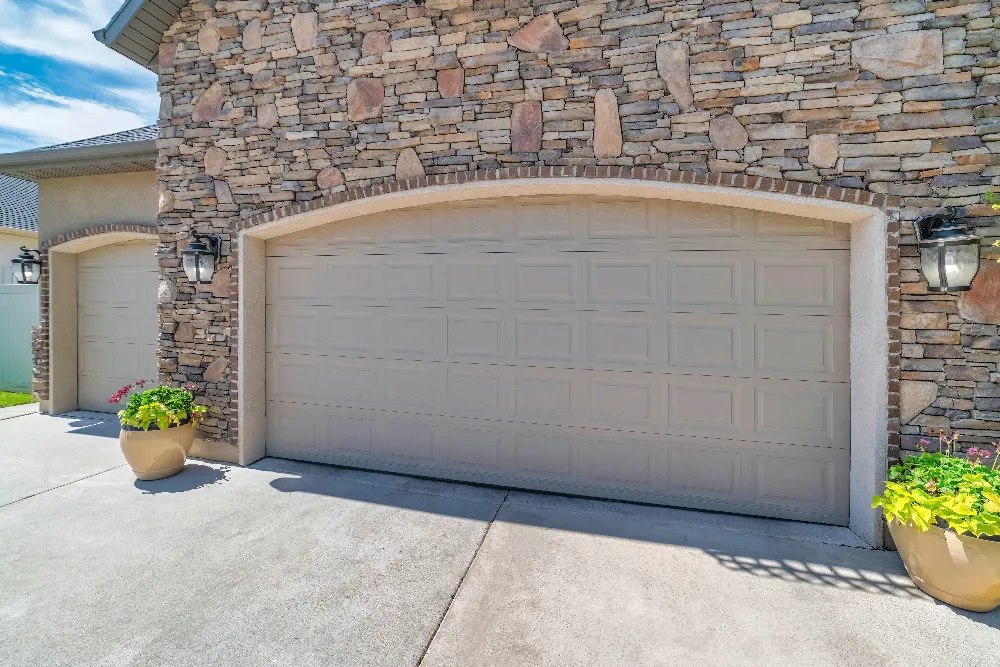
Understanding Common Garage Door Issues
Garage doors, like any mechanical system, are prone to wear and tear over time. Understanding the common issues that can arise will help you identify the problem and determine whether it requires professional attention or if it’s something you can fix yourself. Some of the most common garage door issues include:
1. Noisy operation: If your garage door is making excessive noise during operation, it could be due to worn-out rollers, loose hardware, or lack of lubrication.
2. Door won’t open or close: This can be caused by a variety of factors, such as a malfunctioning opener, broken springs, or misaligned tracks.
3. Sagging or uneven door: Over time, garage doors can sag or become uneven due to loose cables, worn-out springs, or damaged panels.
4. Damaged panels: Accidental impacts or extreme weather conditions can cause dents or cracks in your garage door panels.
If you’re experiencing any of these issues with your garage door, it’s important to address them promptly to prevent further damage and ensure the safety and security of your home.
DIY vs Professional Repair: Pros and Cons
When faced with a garage door issue, one of the first decisions you’ll need to make is whether to attempt a DIY repair or hire a professional technician. Both options have their pros and cons:
DIY Repair:
– Pros: Cost-effective option if you have the necessary skills and tools. Allows for immediate action without having to wait for a technician.
– Cons: Can be time-consuming and potentially dangerous if you’re not familiar with garage door mechanisms. May void any existing warranties.
Professional Repair:
– Pros: Technicians have the expertise and experience to diagnose and fix complex issues. They can ensure the repair is done correctly and safely.
– Cons: Generally more expensive than a DIY repair. Scheduling may be required, resulting in a longer wait time.
Consider your own skill level, the complexity of the issue, and your budget when deciding between DIY and professional repair.
Types of Garage Door Materials and Their Impact on Repair Costs
The material of your garage door can have a significant impact on both its initial cost and potential repair expenses. Here are some common garage door materials:
1. Steel: Steel doors are durable, low-maintenance, and relatively affordable. However, they can dent easily and may require panel replacements if damaged.
2. Wood: Wood doors offer a classic look but require regular maintenance to prevent warping or rotting. Repairs for wood doors can be costly due to the need for specialized treatments or replacements.
3. Aluminum: Aluminum doors are lightweight, resistant to rust, and often less expensive than other materials. However, they may dent easily and could require panel replacements if damaged.
The material of your garage door will influence the cost of repairs based on factors such as availability of replacement parts, labor required for repairs, and specialized knowledge needed for specific materials.
Labor Rates Demystified: How Much to Budget for Technician Services
The cost of hiring a technician for garage door repairs will depend on various factors, including their level of expertise, location, and the complexity of the repair. Labor rates can vary significantly, but on average, you can expect to pay between $75 and $150 per hour for technician services.
Keep in mind that some repairs may require multiple hours of work, especially if they involve complex issues or extensive replacements. It’s essential to get a detailed estimate from the technician before proceeding with any repairs to avoid unexpected costs.
The Anatomy of Garage Door: Components That Are Prone to Fail
To understand the potential repair costs associated with garage doors, it’s helpful to familiarize yourself with their various components. Some of the key components that are prone to failure include:
1. Springs: Garage door springs are responsible for counterbalancing the weight of the door and assisting in its smooth operation. They are under high tension and can break over time.
2. Rollers: Rollers help guide the door along the tracks during opening and closing. Worn-out or damaged rollers can cause noise, friction, and uneven movement.
3. Cables: Cables work in conjunction with springs to support the weight of the door. If they become frayed or broken, it can lead to imbalanced operation or complete failure.
4. Opener: The garage door opener is responsible for automating the opening and closing process. Malfunctioning openers may require repairs or replacement.
Familiarizing yourself with these components will help you understand which parts may need attention during a repair and give you an idea of potential costs involved.
Cost Breakdown: Simple Fixes vs Major Repairs
The cost can vary significantly depending on the complexity of the issue. Here’s a breakdown of the average costs for simple fixes versus major repairs:
Simple Fixes:
– Lubricating hinges, rollers, and tracks: $10-$20
– Replacing weatherstripping: $50-$100
– Adjusting springs or cables: $75-$150
Major Repairs:
– Replacing broken springs: $200-$400
– Repairing or replacing damaged panels: $200-$600 per panel
– Fixing or replacing garage door opener: $200-$500
Keep in mind that these are average costs and can vary depending on factors such as location, labor rates, and the specific brand or model of your garage door.
Hidden Costs to Watch Out
When budgeting for garage door repairs, it’s important to be aware of potential hidden costs that may arise. These can include:
1. Additional parts: During the repair process, it’s possible that additional components may need replacement. This can add to the overall cost.
2. Emergency service fees: If you require immediate repair outside of regular business hours, some technicians may charge an additional fee for emergency services.
3. Trip charges: Depending on your location and the distance traveled by the technician, there may be a trip charge added to cover transportation expenses.
To avoid any surprises, it’s recommended to ask for a detailed estimate upfront and inquire about any potential hidden costs before proceeding with the repairs.
Factors Influencing the Cost of Garage Door Replacement
In some cases, repairing a garage door may not be feasible, and replacement becomes necessary. Several factors can influence the cost of garage door replacement:
1. Door size and material: Larger doors or those made from premium materials will generally cost more to replace.
2. Insulation: If you opt for an insulated garage door, it can increase the overall cost due to the added materials and installation complexity.
3. Design and style: Customized or unique designs may come at a higher price compared to standard options.
The average cost of a new garage door, including installation, can range from $800 to $4,000 or more, depending on these factors.
Tips for Preventing Costly
To minimize the need for costly garage door repairs in the future, consider implementing these preventive measures:
1. Maintain regular lubrication: Apply lubricant to hinges, rollers, and tracks every six months to reduce friction and prevent premature wear.
2. Tighten loose hardware: Regularly inspect and tighten any loose screws or bolts on your garage door and its components.
3. Clean tracks regularly: Remove debris from the tracks to ensure smooth operation and prevent damage to rollers.
4. Avoid DIY spring replacements: Garage door springs are under high tension and should only be replaced by trained professionals to avoid accidents.
[Conclusion: Empowering Yourself with Knowledge on Garage Door Repair Costs]
In conclusion, understanding the costs associated with garage door repairs is essential for making informed decisions when faced with issues. By familiarizing yourself with common problems, considering DIY versus professional repair, and understanding the factors that influence costs, you can navigate the repair process confidently.
Remember to budget for labor rates, be aware of potential hidden costs, and explore preventive measures to minimize future repairs. Armed with this knowledge, you can ensure that your garage door continues to serve its purpose reliably while keeping your wallet happy.

